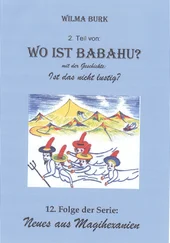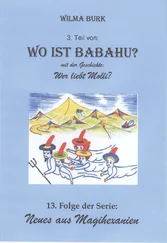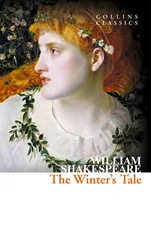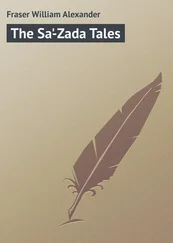William Beckford - Vathek; An Arabian Tale
Здесь есть возможность читать онлайн «William Beckford - Vathek; An Arabian Tale» — ознакомительный отрывок электронной книги совершенно бесплатно, а после прочтения отрывка купить полную версию. В некоторых случаях можно слушать аудио, скачать через торрент в формате fb2 и присутствует краткое содержание. Жанр: foreign_antique, foreign_prose, на английском языке. Описание произведения, (предисловие) а так же отзывы посетителей доступны на портале библиотеки ЛибКат.
- Название:Vathek; An Arabian Tale
- Автор:
- Жанр:
- Год:неизвестен
- ISBN:нет данных
- Рейтинг книги:5 / 5. Голосов: 1
-
Избранное:Добавить в избранное
- Отзывы:
-
Ваша оценка:
- 100
- 1
- 2
- 3
- 4
- 5
Vathek; An Arabian Tale: краткое содержание, описание и аннотация
Предлагаем к чтению аннотацию, описание, краткое содержание или предисловие (зависит от того, что написал сам автор книги «Vathek; An Arabian Tale»). Если вы не нашли необходимую информацию о книге — напишите в комментариях, мы постараемся отыскать её.
Vathek; An Arabian Tale — читать онлайн ознакомительный отрывок
Ниже представлен текст книги, разбитый по страницам. Система сохранения места последней прочитанной страницы, позволяет с удобством читать онлайн бесплатно книгу «Vathek; An Arabian Tale», без необходимости каждый раз заново искать на чём Вы остановились. Поставьте закладку, и сможете в любой момент перейти на страницу, на которой закончили чтение.
Интервал:
Закладка:
Nearly fifty years after the publication of “Vathek,” in 1835, Mr. Beckford published his “Recollections of an Excursion to the Monasteries of Alcobaca and Batalha,” which he had taken in 1795, together with an epistolatory record of his observations in Italy, Spain and Portugal, between the years 1780 and 1794. These are marked, as he himself intimates, “with the bloom and heyday of youthful spirits and youthful confidence, at a period when the older order of things existed with all its picturesque pomps and absurdities; when Venice enjoyed her Piombi and sub-marine dungeons; Prance her Bastille; the Peninsula her Holy Inquisition.” With none of those subjects, however, are the letters occupied – but with delineations of landscape, and the effects of natural phenomena. These literary efforts appear to have exhausted their author’s productive powers; in a word, he seems soon to have been “used-up,” and then to have discontinued his search after new sensations, or to have been content to live without them.
After the sale of Fonthill, our author lived a considerable time in Portugal, and hence Lord Byron, who was fond of casting the shadow of his own imagination over every object, penned the well-known lines at Cintra:
“There thou, too, Vathek, England’s wealthiest son,
Once formed thy paradise; as not aware
Where wanton wealth her mightiest deeds hath done,
Meek peace, voluptuous lures, was ever wont to shun.
Here didst thou dwell; here scenes of pleasure plan,
Beneath yon mountain’s ever beauteous brow;
But now, as if a thing unblest by man,
Thy fairy dwelling is as lone as thou!
Here giant weeds a passage scarce allow
To halls deserted; portals gaping wide
Fresh lessons to the thinking bosom; how
Vain are the pleasaunces on earth supplied,
Swept into wrecks anon by time’s ungentle tide.”
These sombre verses contrast strangely with Beckford’s saying to Mr. Cyrus Redding, in his seventy-sixth year, “that he had never felt a moments’ ennui in his life.”
Beckford was in person scarcely above the middle height, slender, and well formed, with features indicating great intellectual power. He was exactly one year younger than Pitt, the companion of his minority. His political principles were popular, though it is recorded, that at a court ball on the Queen’s birth-day, in 1782, he, with Miss North, led up a country dance. He sat in parliament, in his early years, both for Wells and Hendon, but retired on account of bad health. This, however, he overcame by careful diet and exercise, as testified by his great bodily activity almost to the last. He was a man of most extensive reading, and cultivated taste.
The last years of his life were passed at Bath – where he united two houses in Lansdown Crescent, by an arch thrown across the street, and containing his library, which was well selected, and very extensive. Not far off, he again erected a tower, 180 feet high, of which the following description was given at the time of his decease, by a correspondent of the Athenæum: —
“Mr. Beckford, at an early period of his residence there, erected a lofty tower, in the apartments of which were placed many of his choicest paintings and articles of virtu. Asiatic in its style, with gilded lattices and blinds, or curtains, of crimson cloth, its striped ceilings, its minaret, and other accessories, conveyed the idea that the being who designed the place and endeavoured to carry out the plan, was deeply imbued with the spirit of that lonely grandeur and strict solitariness which obtains through all countries and among all people of the East. The building was surrounded by a high wall, and entrance afforded to the garden in which the tower stood, by a door of small dimensions. The garden itself was Eastern in its character. Though comparatively circumscribed in its size, nevertheless were to be found within it, solitary walks and deep retiring shades, such as could be supposed Vathek, the mournful and the magnificent, loved, and from the bowers of which might be expected would suddenly fall upon the ear, sounds of the cymbal and the dulcimer. The building contained several apartments crowded with the finest paintings. At the time I made my inspection the walls were crowded with the choicest productions of the easel. The memory falls back upon ineffaceable impressions of Old Franks, Breughel, Cuyp, Titian, (a Holy Family), Hondekooter, Polemberg, and a host of other painters whose works have immortalized Art. Ornaments of the most exquisite gold fillagree, carvings in ivory and wood, Raphaelesque china, goblets formed of gems, others fashioned by the miraculous hands of Benvenuto Cellini, filled the many cabinets and recherché receptacles created for such things. The doors of the rooms were of finely polished wood – the windows of single sweeps of plate glass – the cornices of gilded silver; every part, both within and without, bespeaking the wealth, the magnificence, and the taste of him who had built this temple in dedication to grandeur, solitariness, and the arts.”
From the summit of this tower, Mr. Beckford, and he alone without a telescope, – could behold that other tower of his youthful magnificence, Fonthill; on which he loved to gaze, with feelings which it would be difficult to describe. His eyesight was wonderful; he could gaze upon the sun like an eagle; and on the day that the great tower at Fonthill fell he missed it in the landscape long before the news of the catastrophe reached Bath.
In conclusion, we have only to add, that our author, in his life-time, had all that wealth can give, and in his grave his memory will retain that which no wealth can purchase. Whatever may have been his errors, they have died with him. His genius yet lives, and “Vathek,” now for the first time presented to the public in a popular form, will, whilst English literature lasts, never want readers, and, while good taste flourishes, admirers.
PREFACE
The original of the following story, with some others of a similar kind, collected in the east by a man of letters, was communicated to the editor above three years ago. The pleasure he received from the perusal of it induced him at that time to transcribe, and since to translate it. How far the copy may be a just representation it becomes not him to determine. He presumes however to hope that if the difficulty of accommodating our English idioms to the Arabic, preserving the correspondent tones of a diversified narration, and discriminating the nicer touches of character through the shades of foreign manners be duly considered, a failure in some points will not preclude him from all claim to indulgence; especially if those images, sentiments, and passions, which being independent of local peculiarities, may be expressed in every language, shall be found to retain their native energy in our own.
VATHEK
Vathek, ninth Caliph 1 1 Caliph . This title amongst the Mahometans comprehends the concrete character of prophet, priest, and king; and is used to signify the Vicar of God on earth . – Habesci’s State of the Ottoman Empire, p. 9. Herbelot, p. 985.
of the race of the Abassides, was the son of Motassem, and the grandson of Haroun Al Raschid. From an early accession to the throne, and the talents he possessed to adorn it, his subjects were induced to expect that his reign would be long and happy. His figure was pleasing and majestic; but when he was angry, one of his eyes became so terrible 2 2 One of his eyes became so terrible . The author of Nighiaristan hath preserved a fact that supports this account; and there is no history of Vathek, in which his terrible eye is not mentioned.
that no person could bear to behold it; and the wretch upon whom it was fixed instantly fell backward, and sometimes expired. For fear, however, of depopulating his dominions, and making his palace desolate, he but rarely gave way to his anger.
Интервал:
Закладка:
Похожие книги на «Vathek; An Arabian Tale»
Представляем Вашему вниманию похожие книги на «Vathek; An Arabian Tale» списком для выбора. Мы отобрали схожую по названию и смыслу литературу в надежде предоставить читателям больше вариантов отыскать новые, интересные, ещё непрочитанные произведения.
Обсуждение, отзывы о книге «Vathek; An Arabian Tale» и просто собственные мнения читателей. Оставьте ваши комментарии, напишите, что Вы думаете о произведении, его смысле или главных героях. Укажите что конкретно понравилось, а что нет, и почему Вы так считаете.












